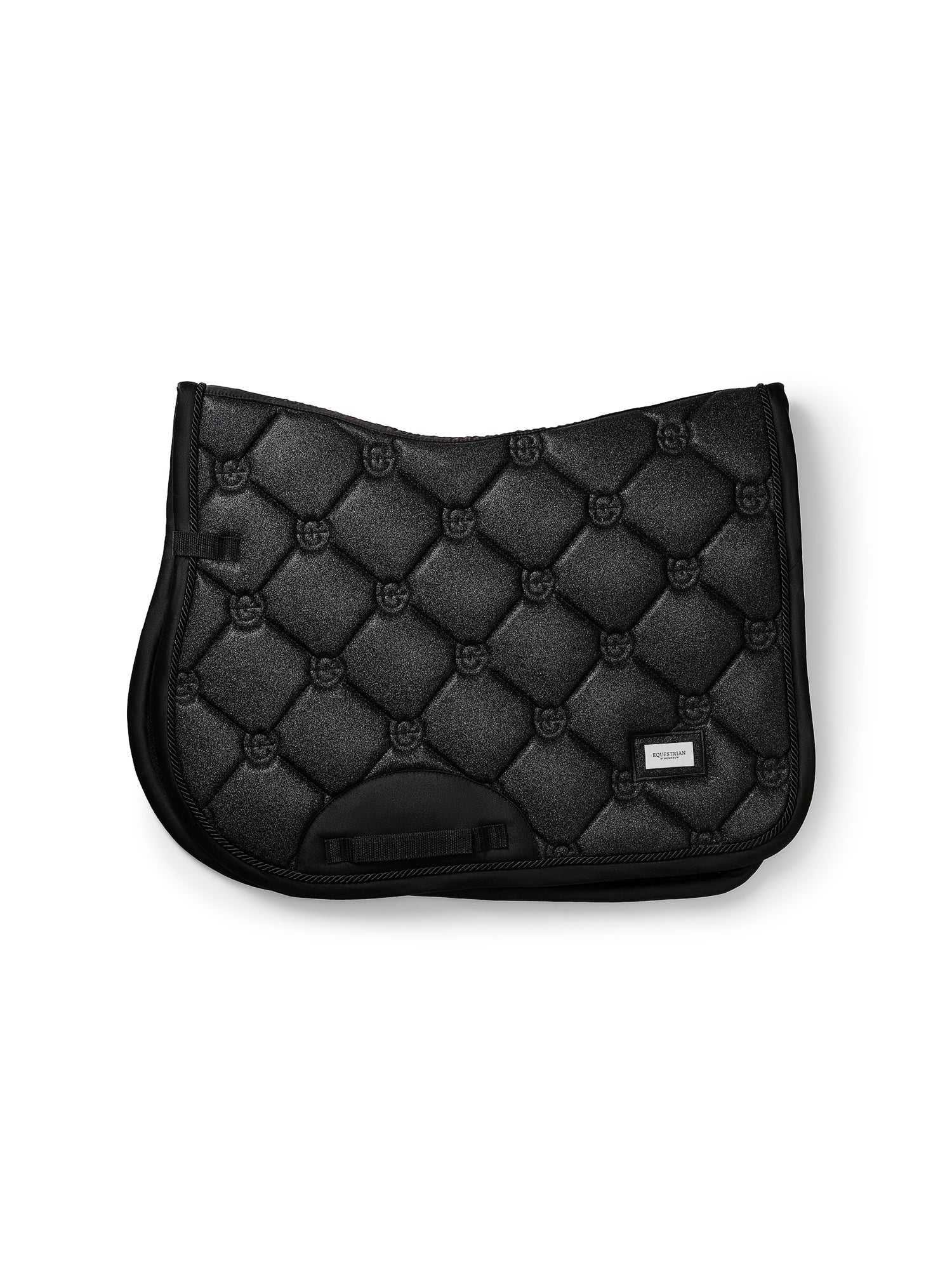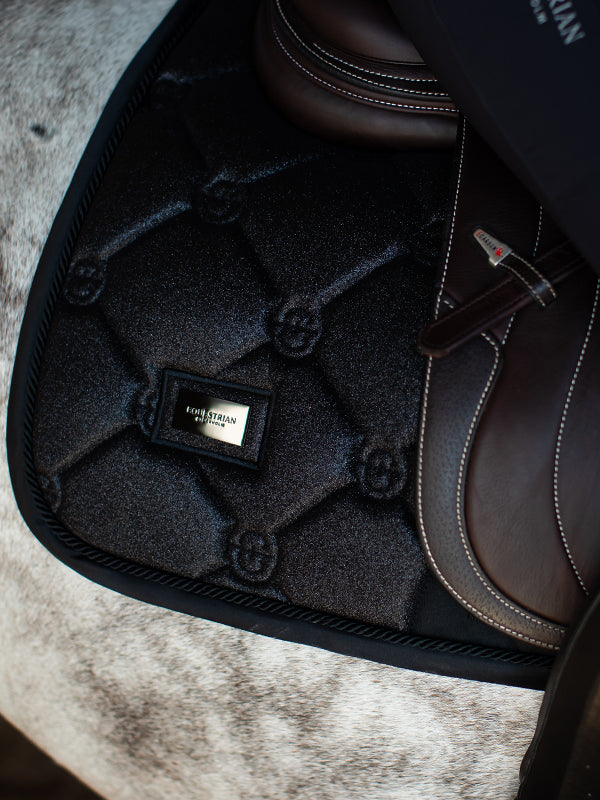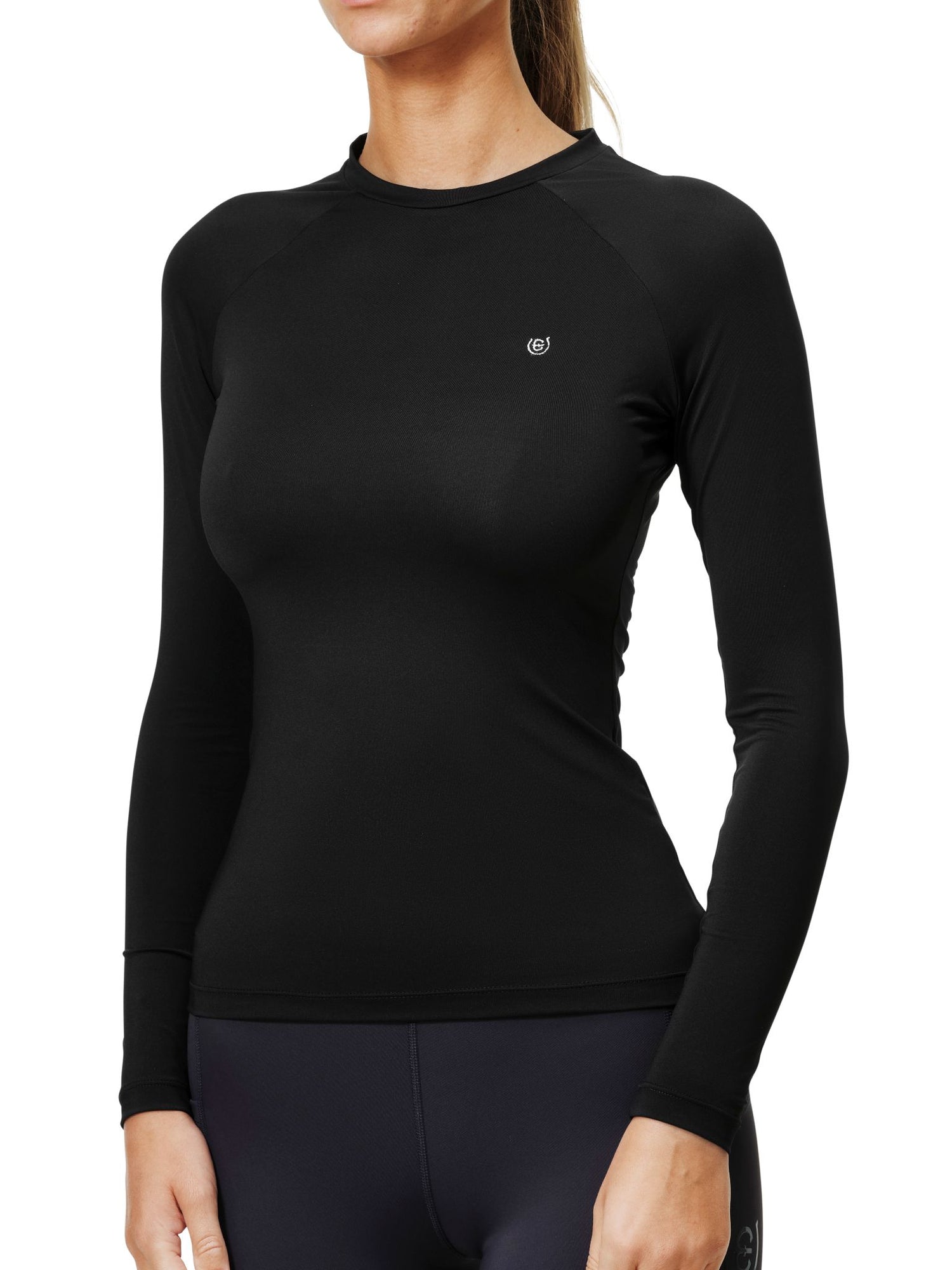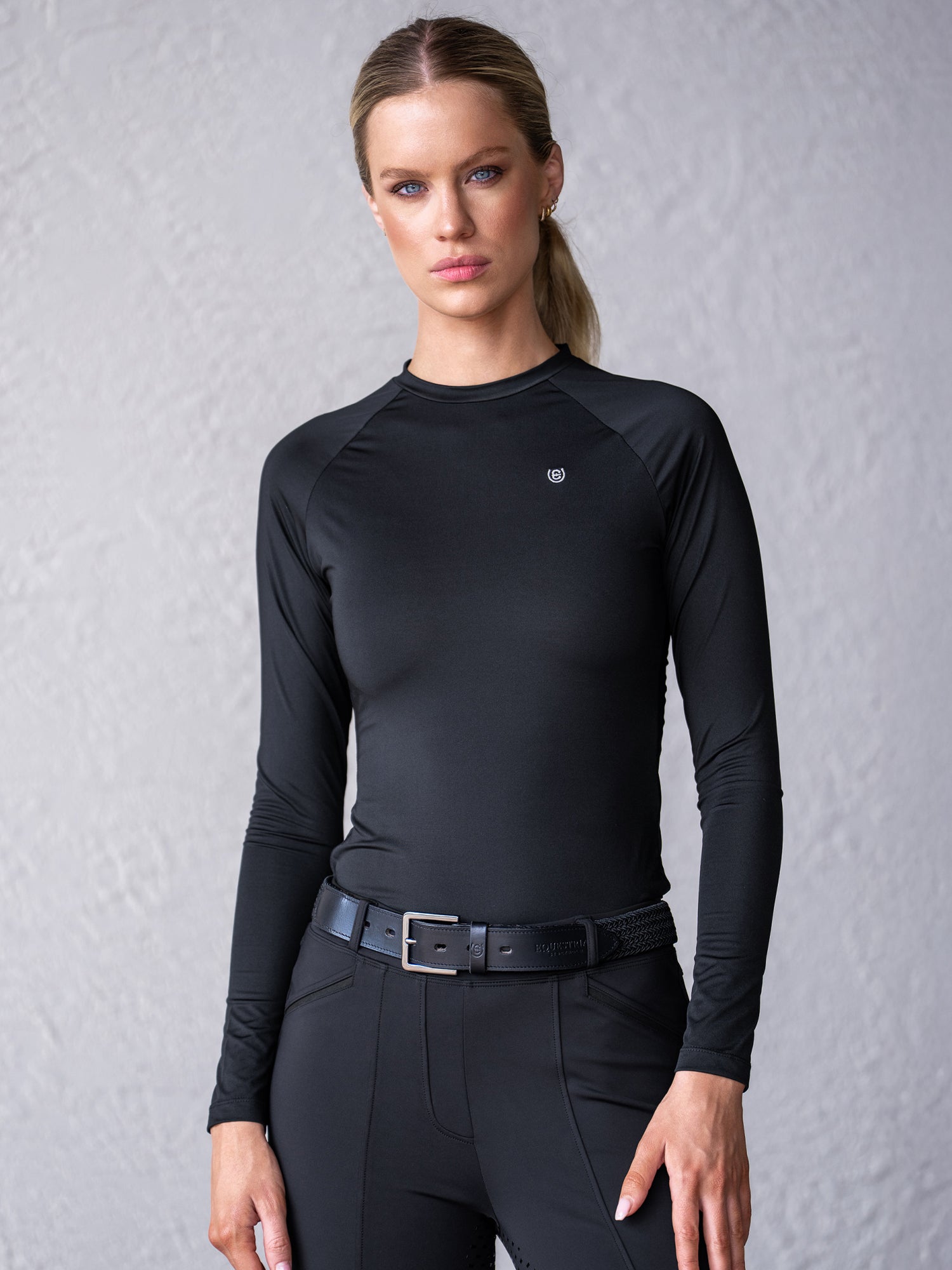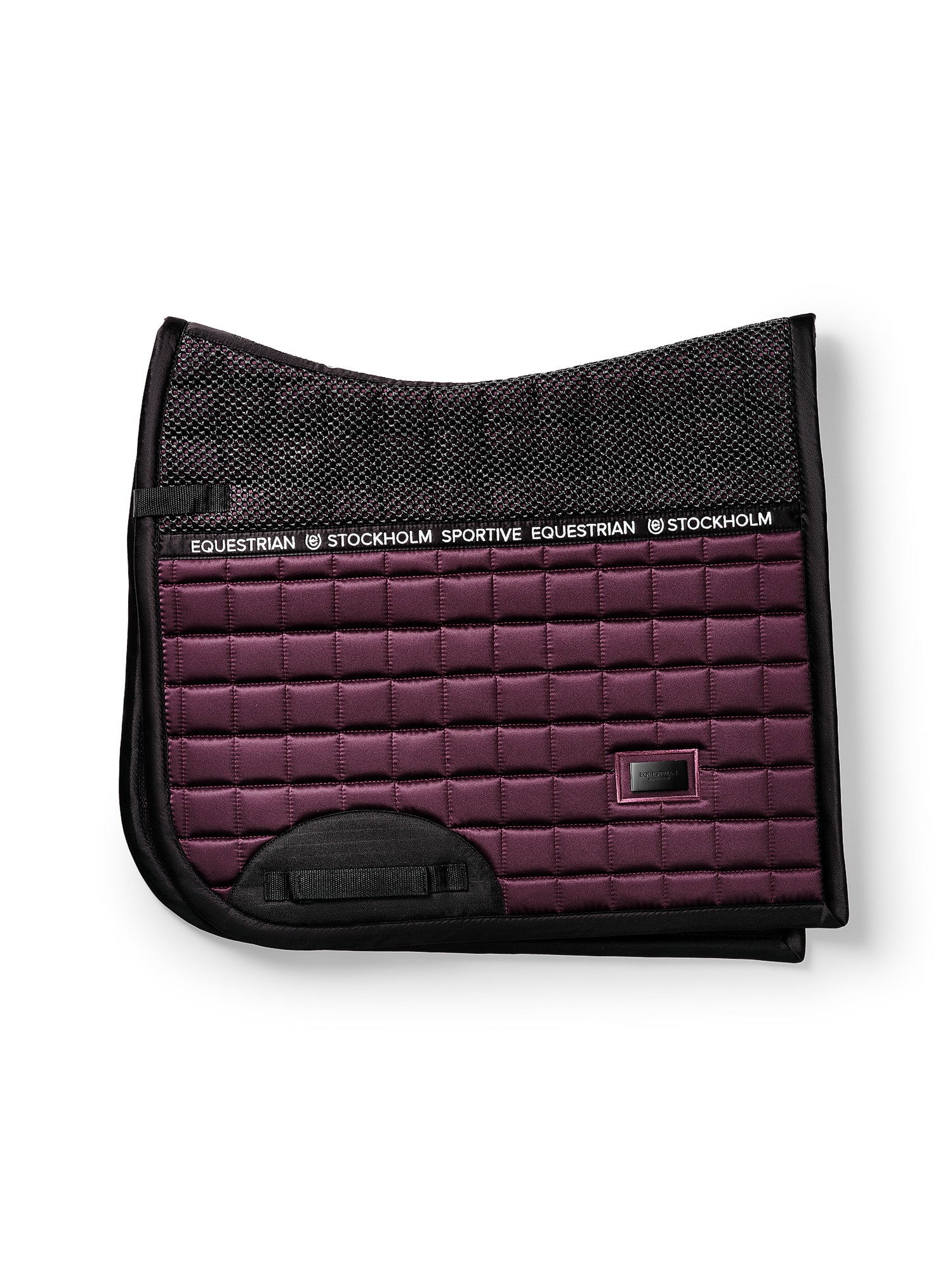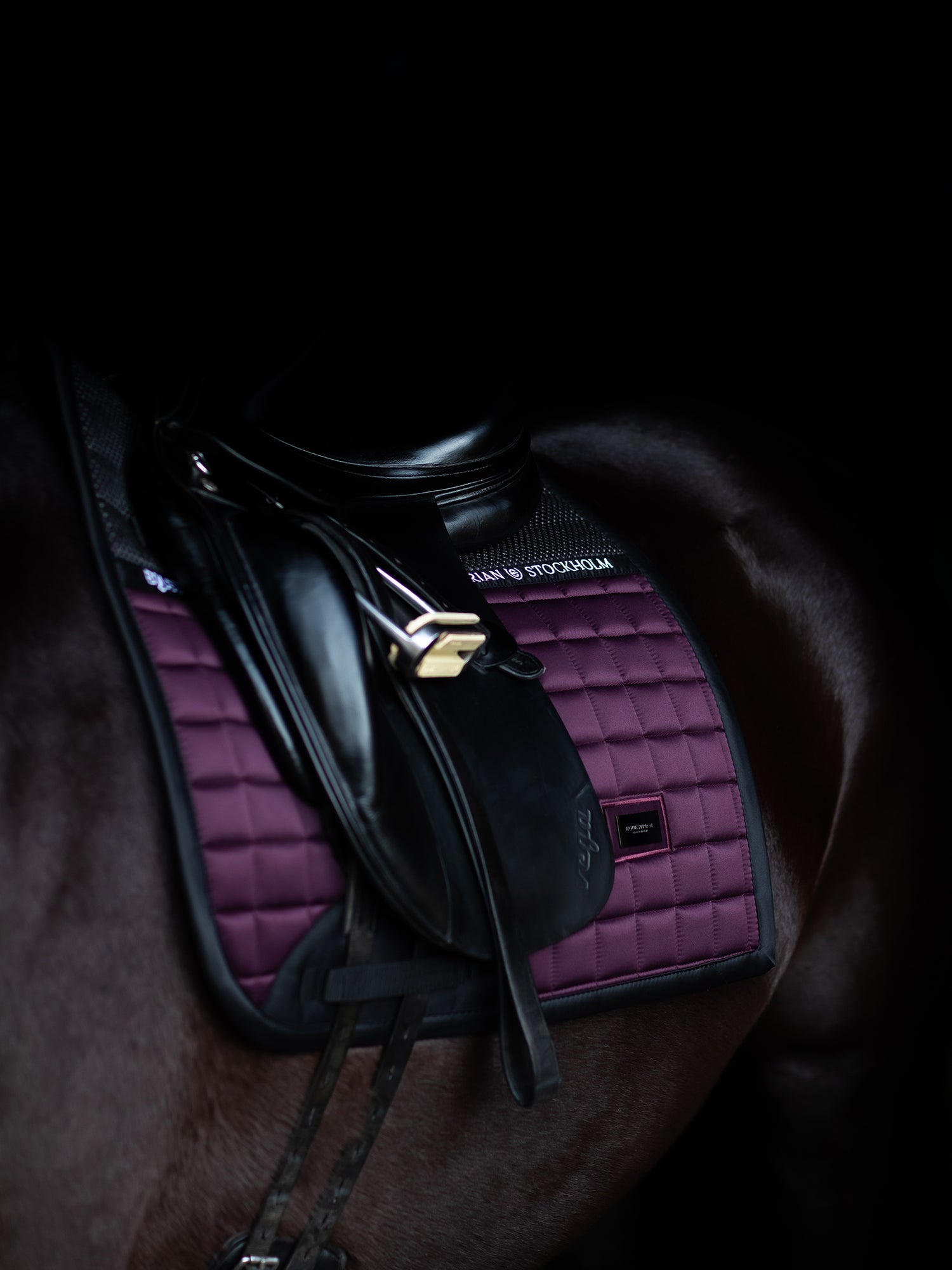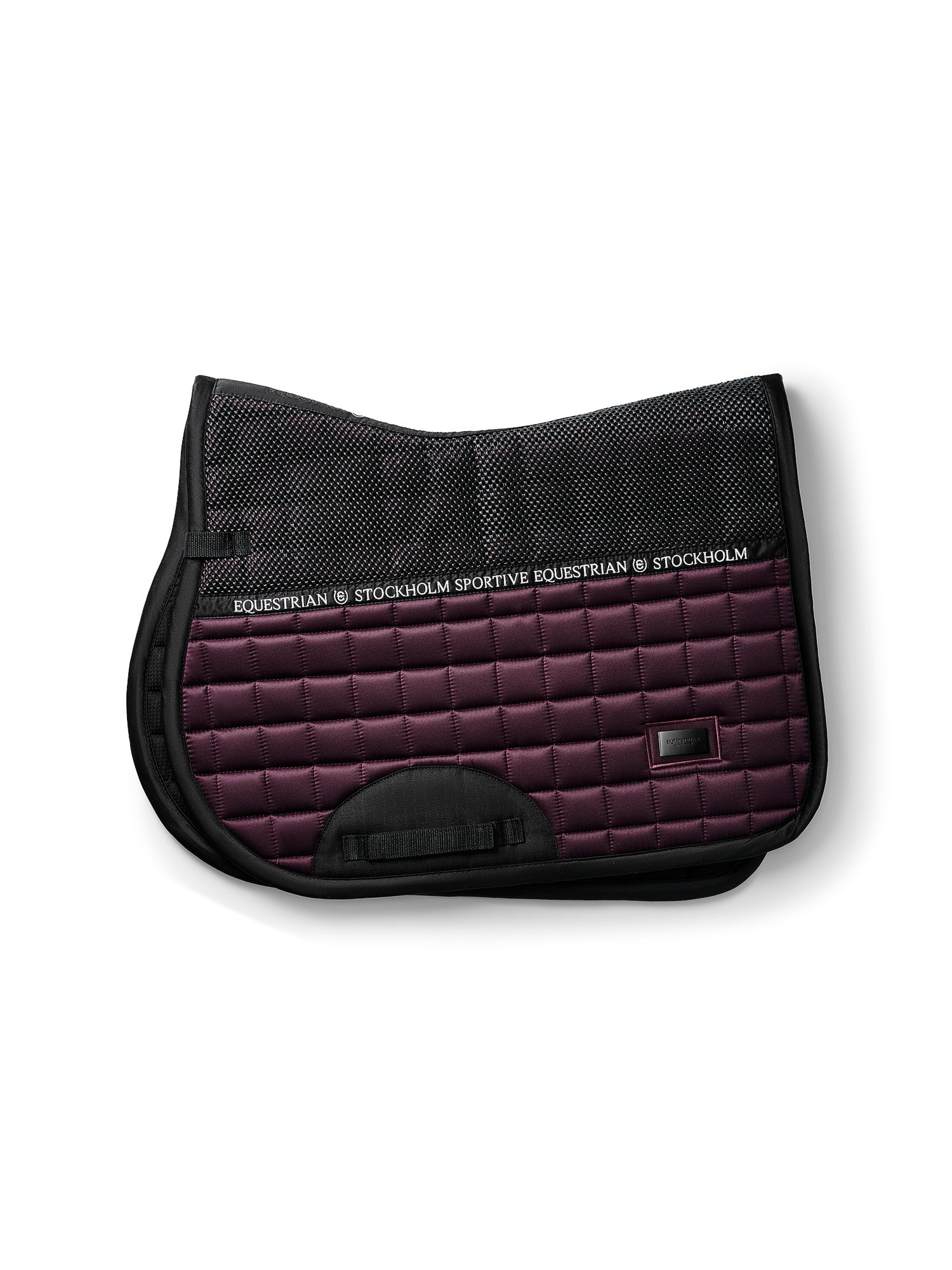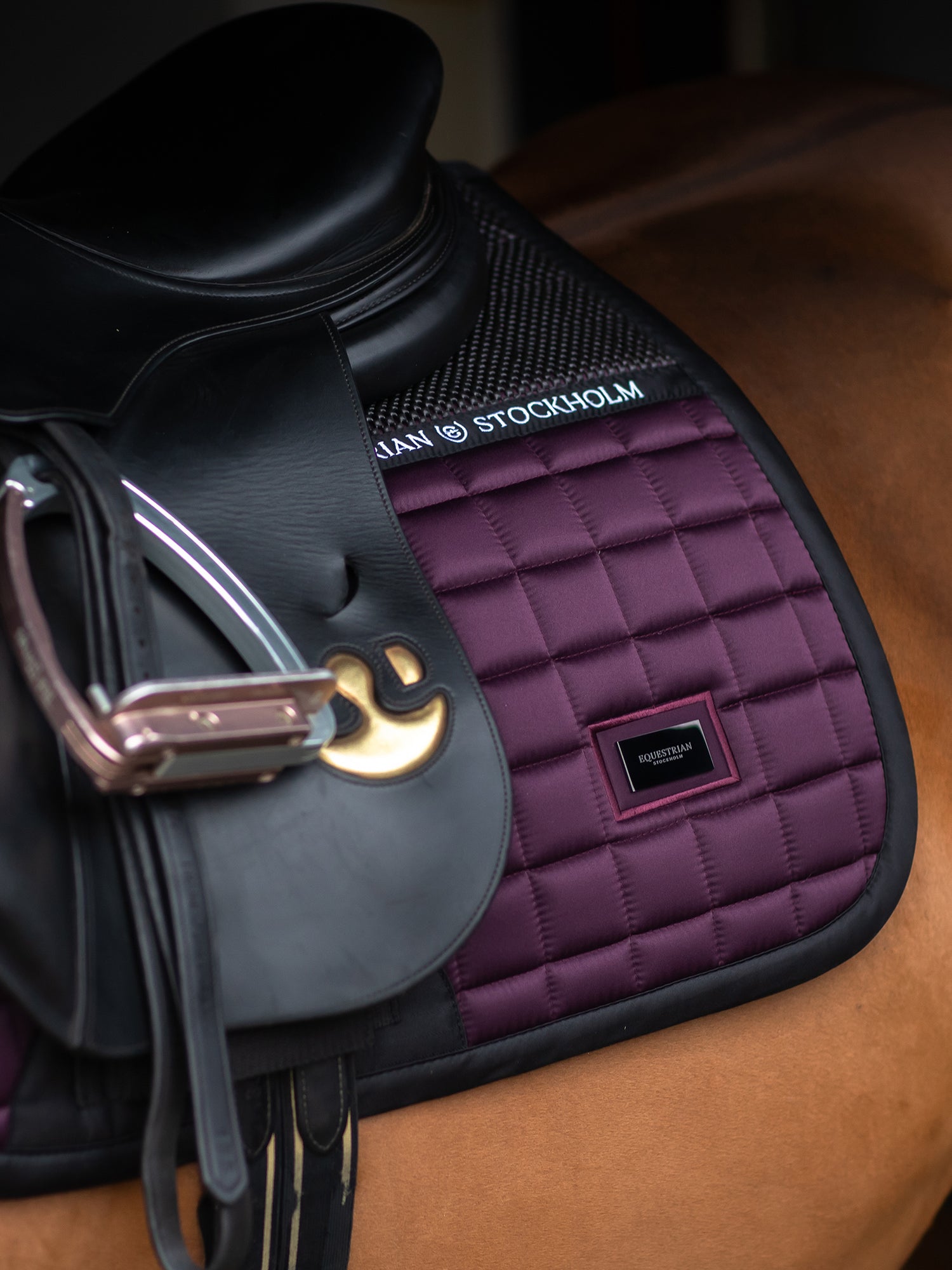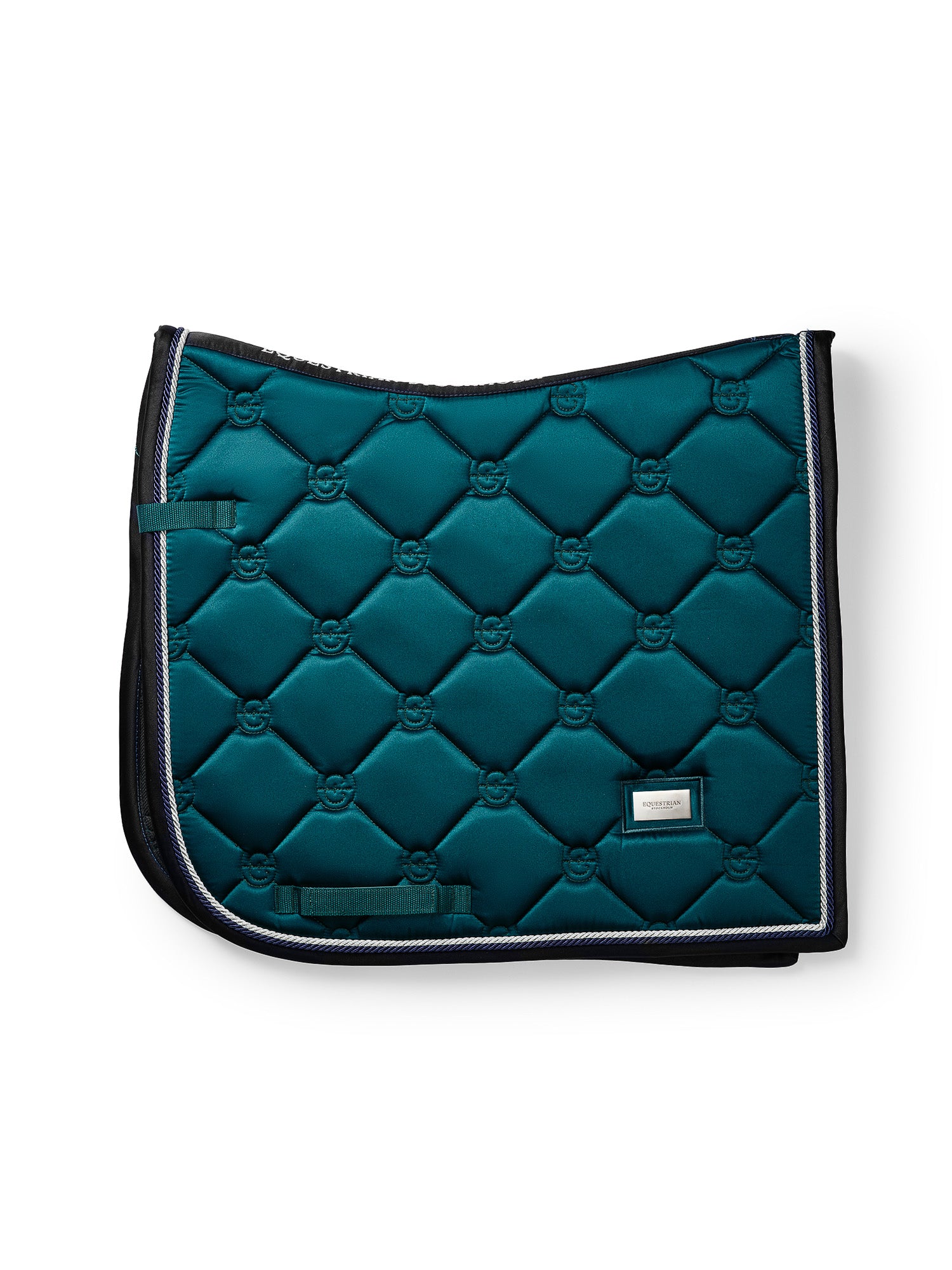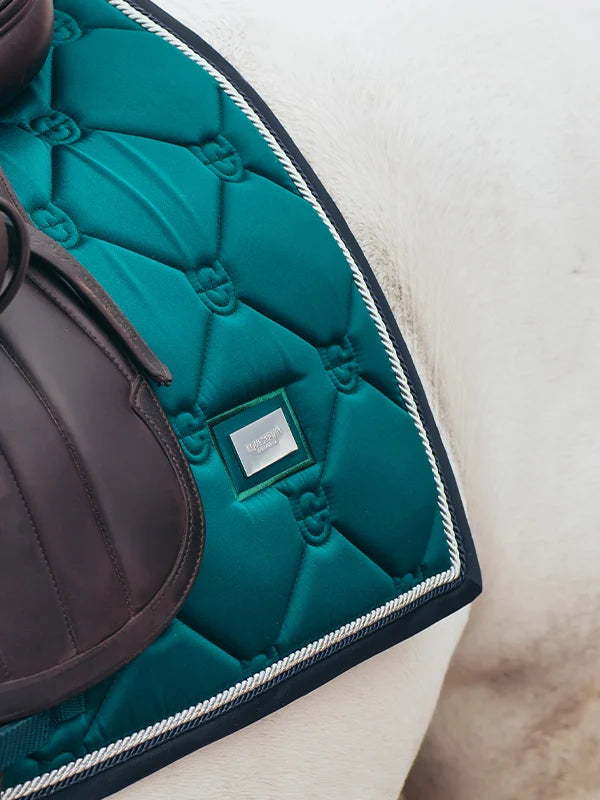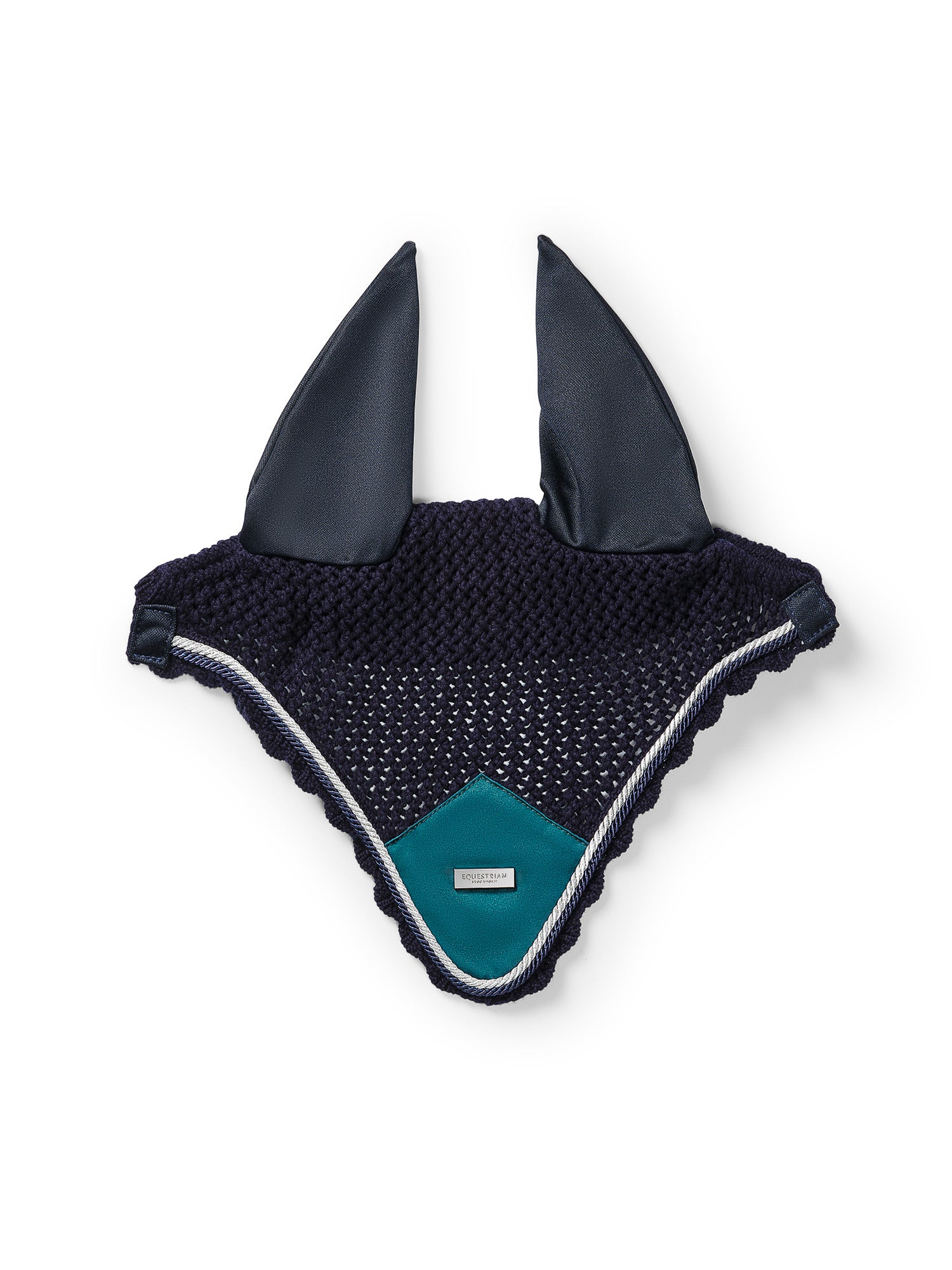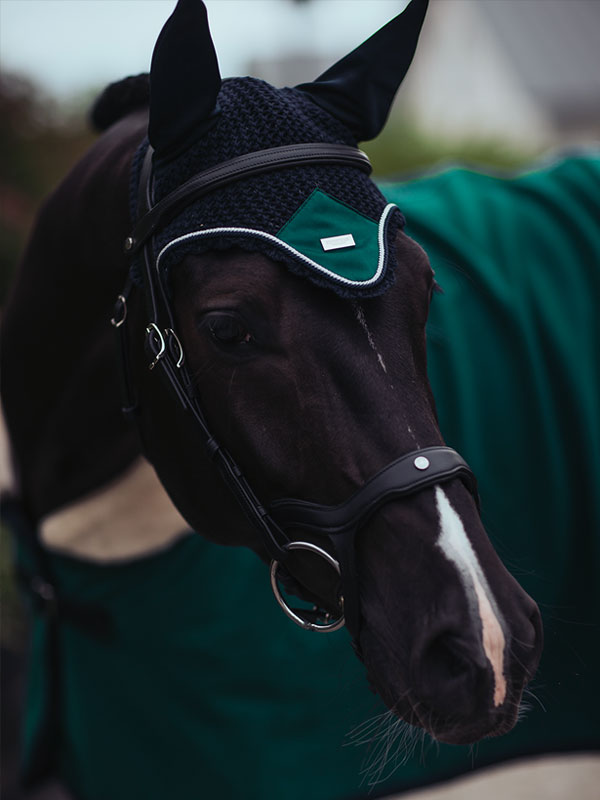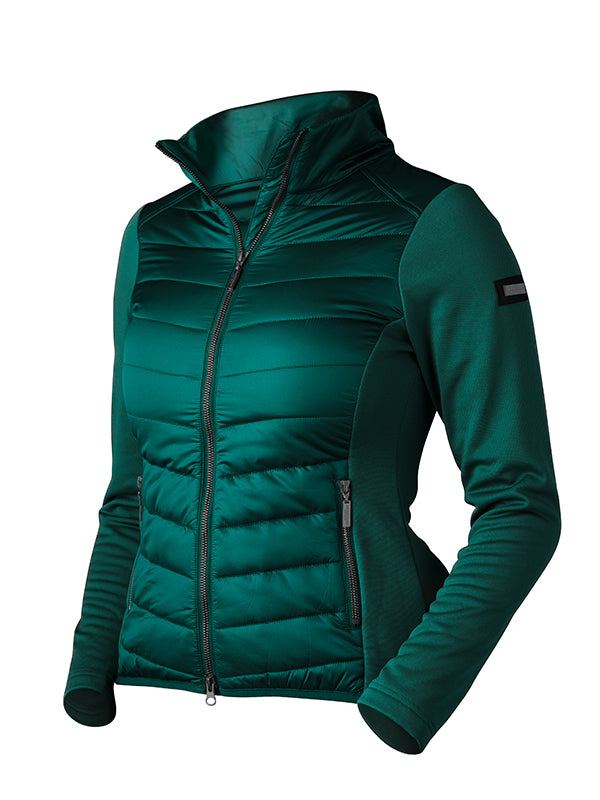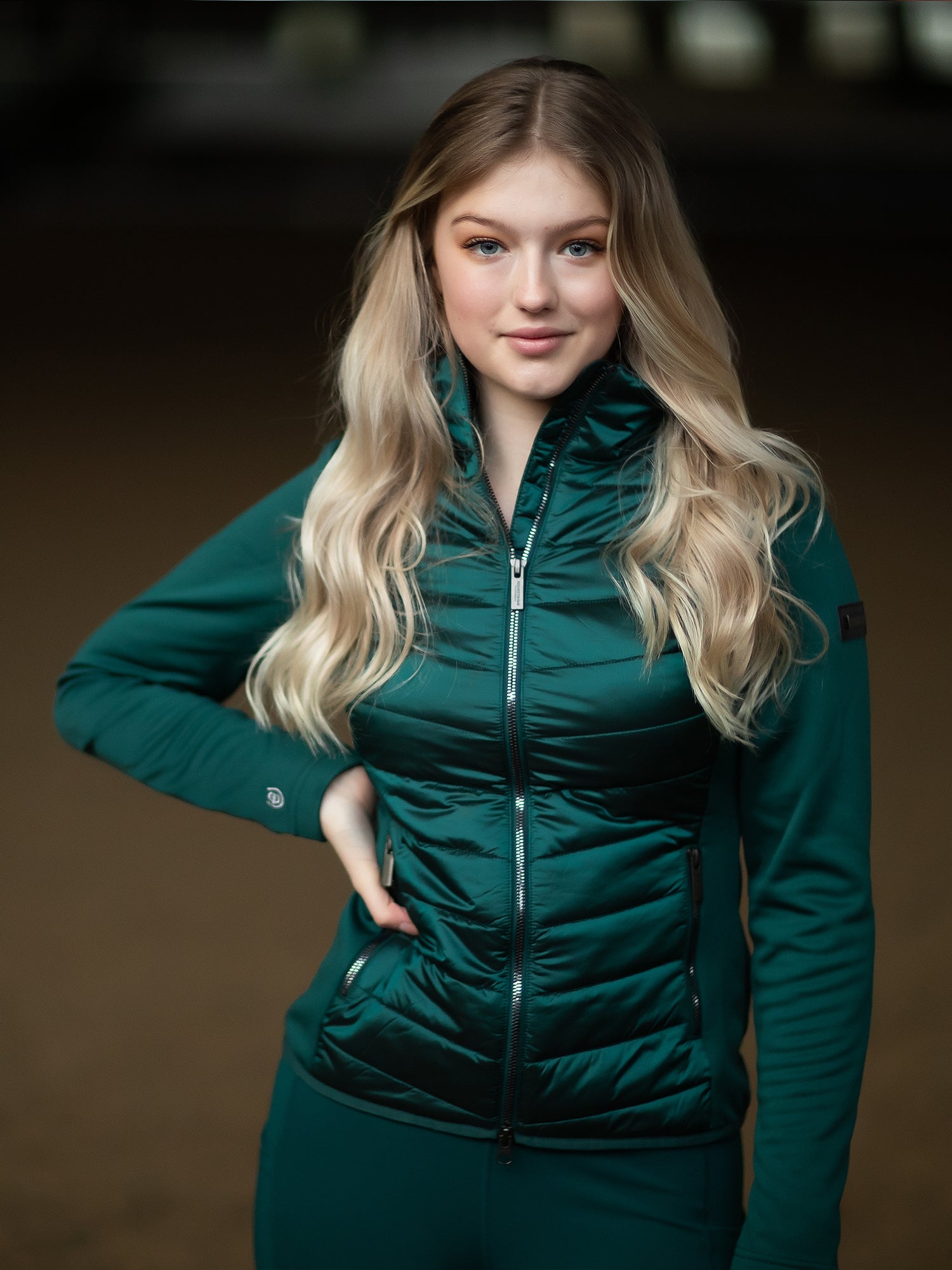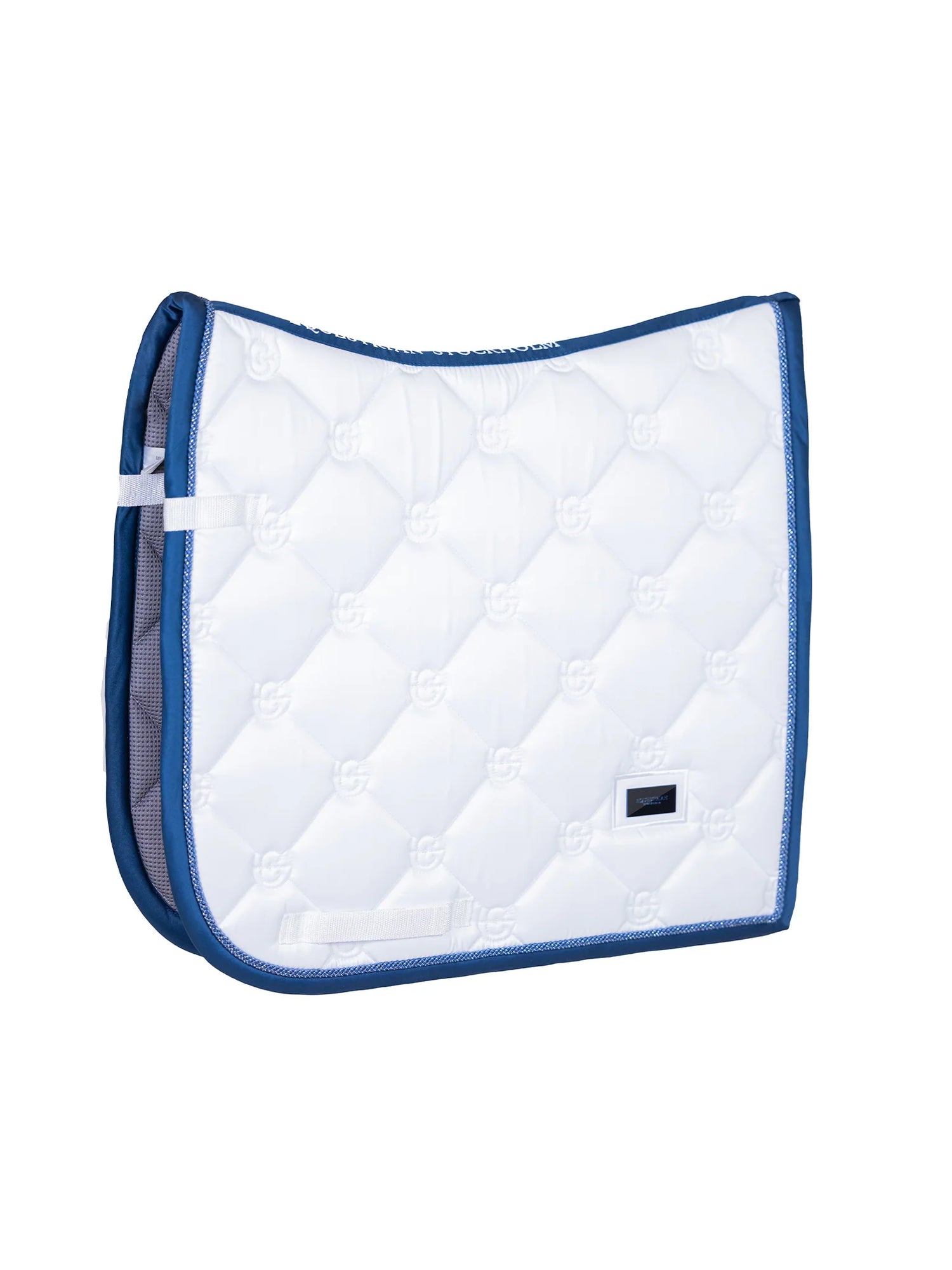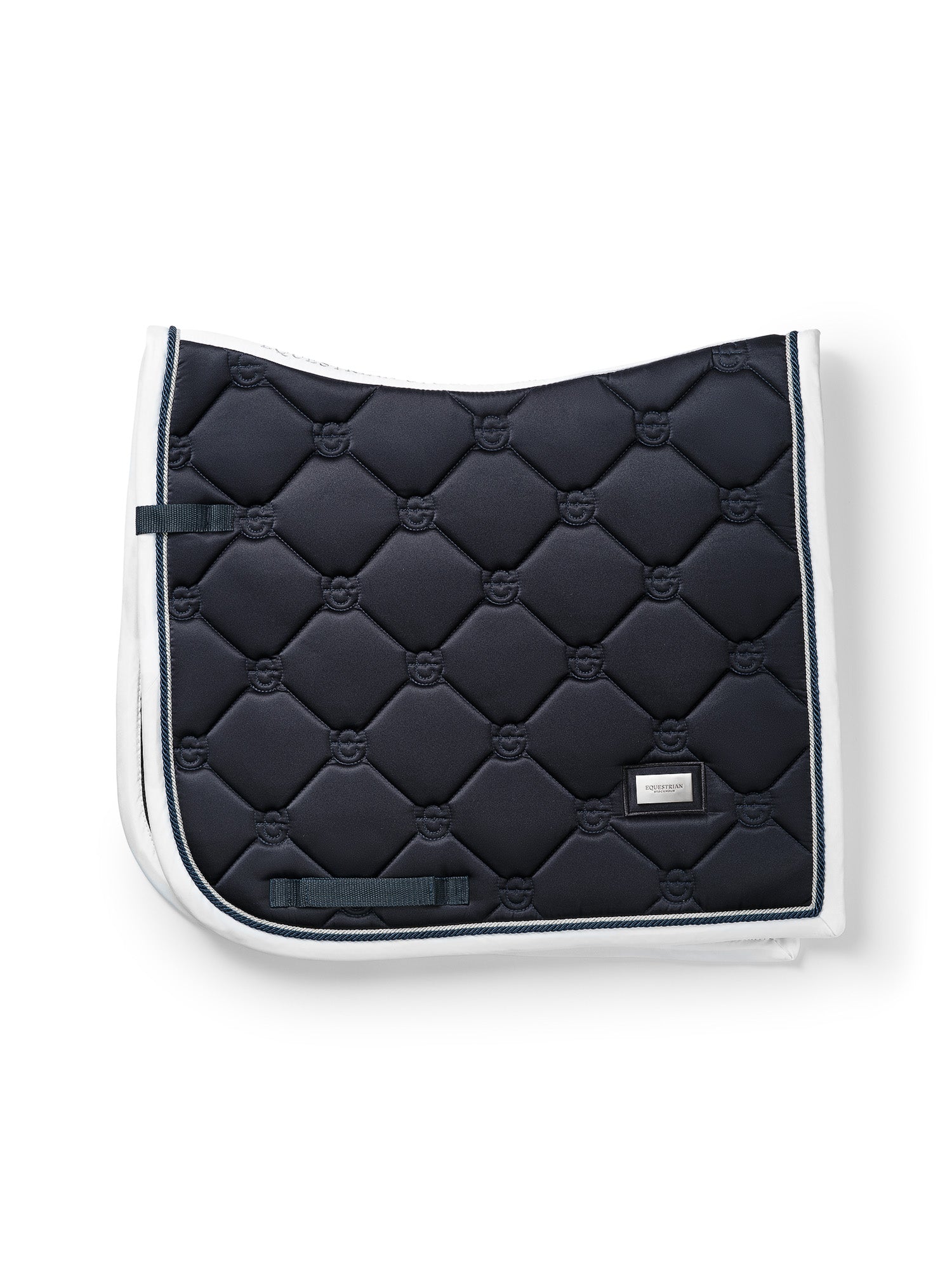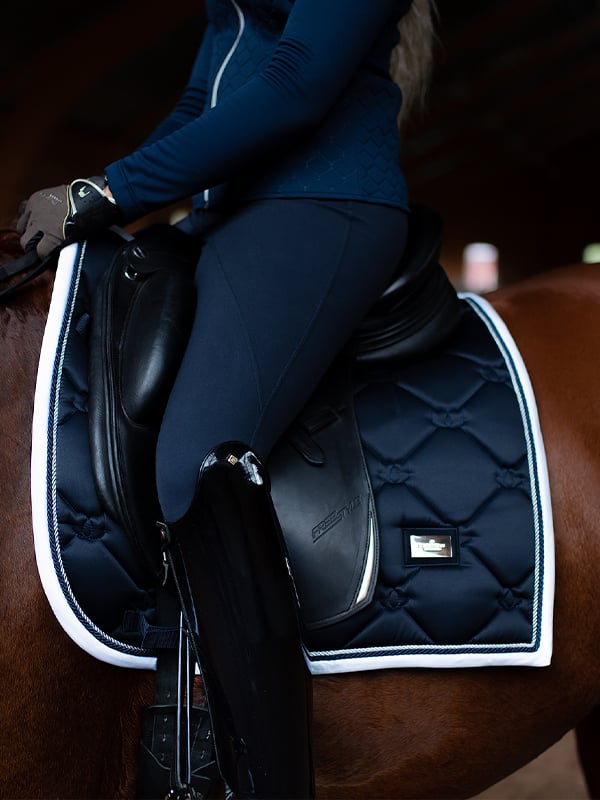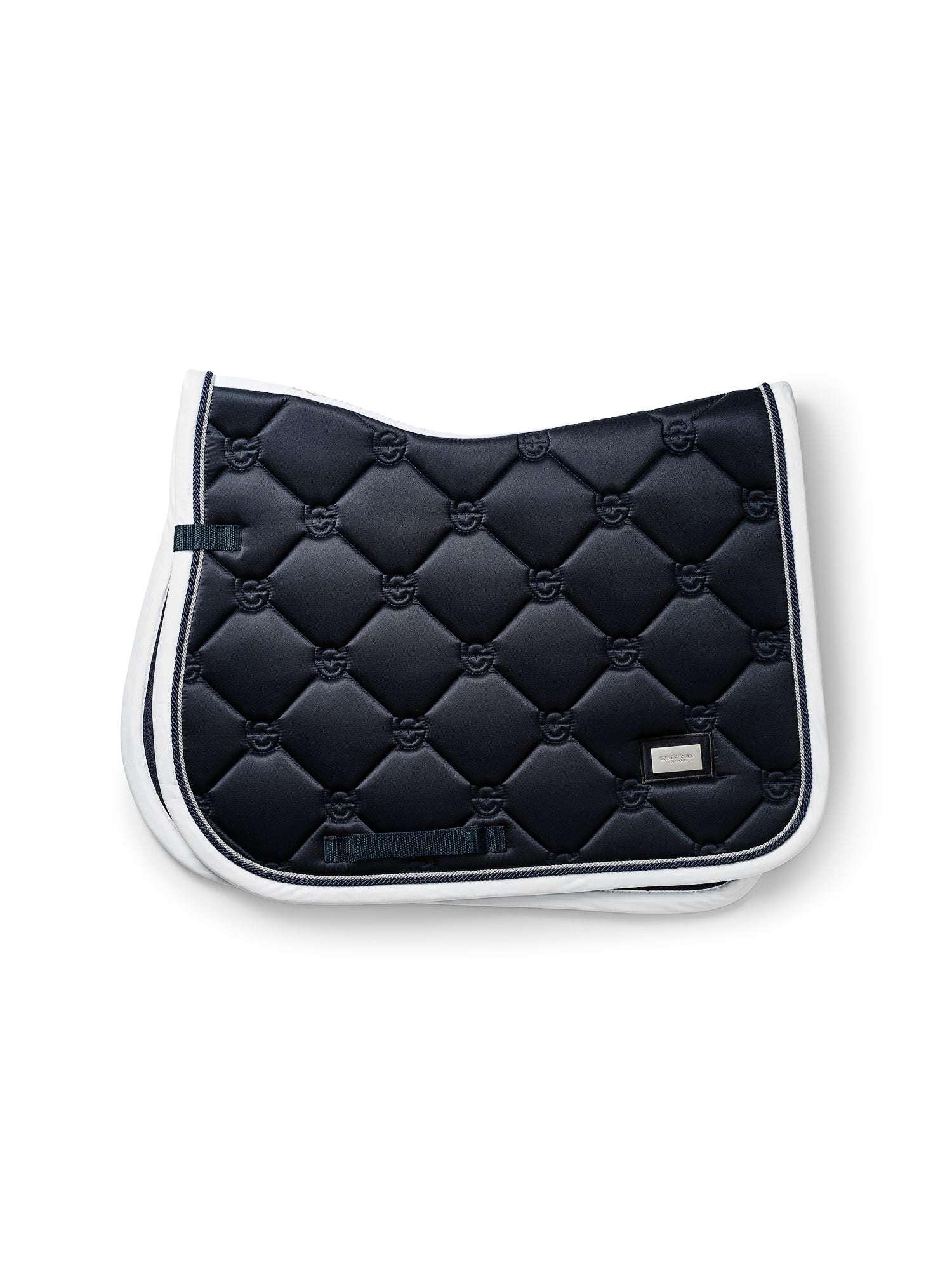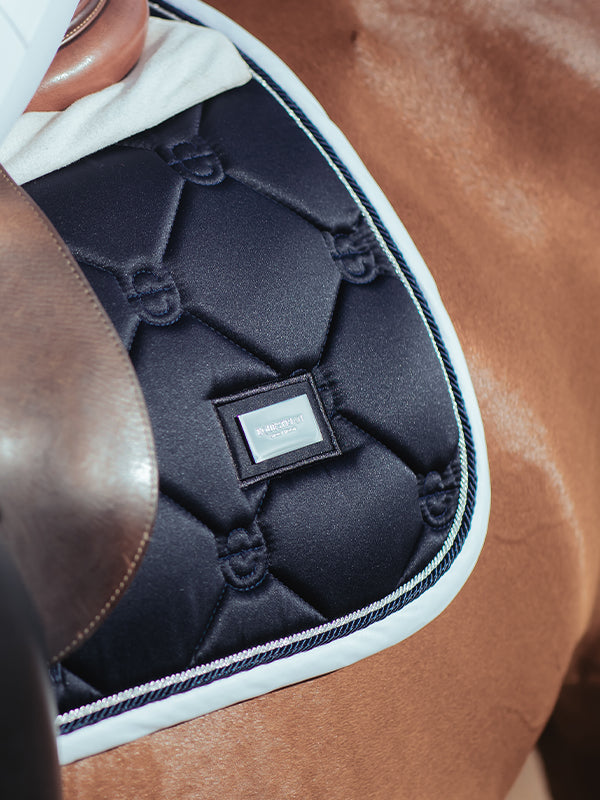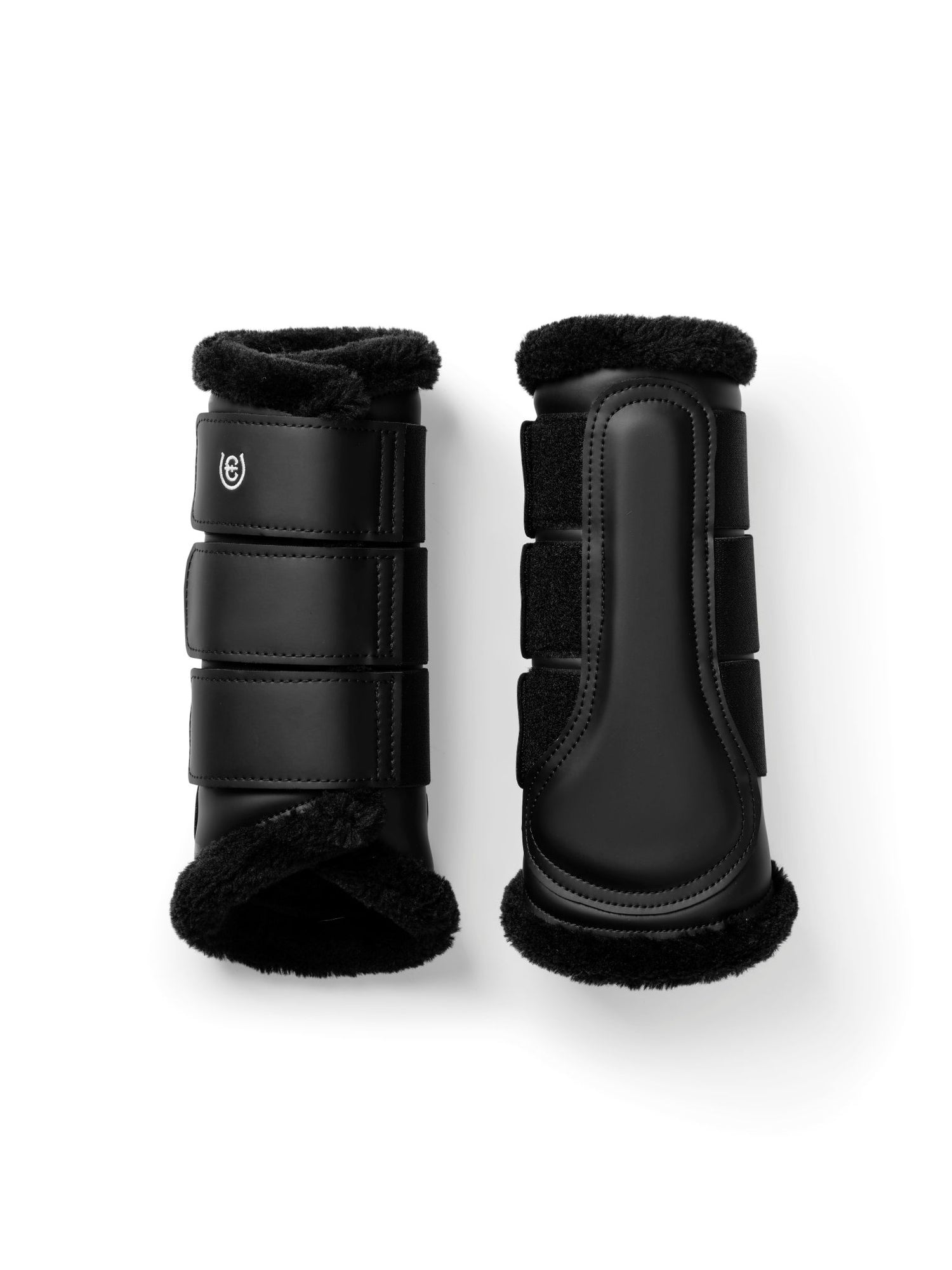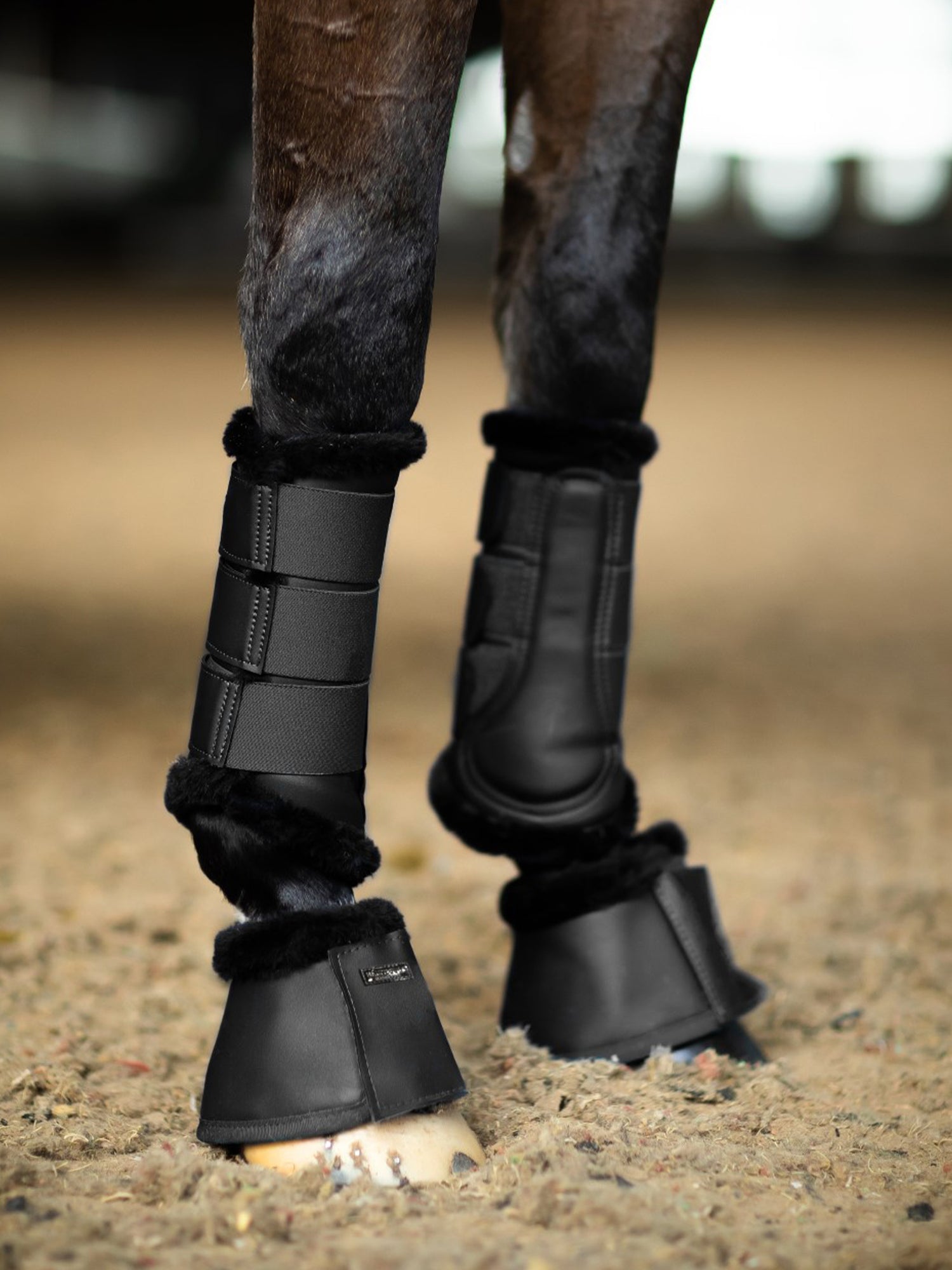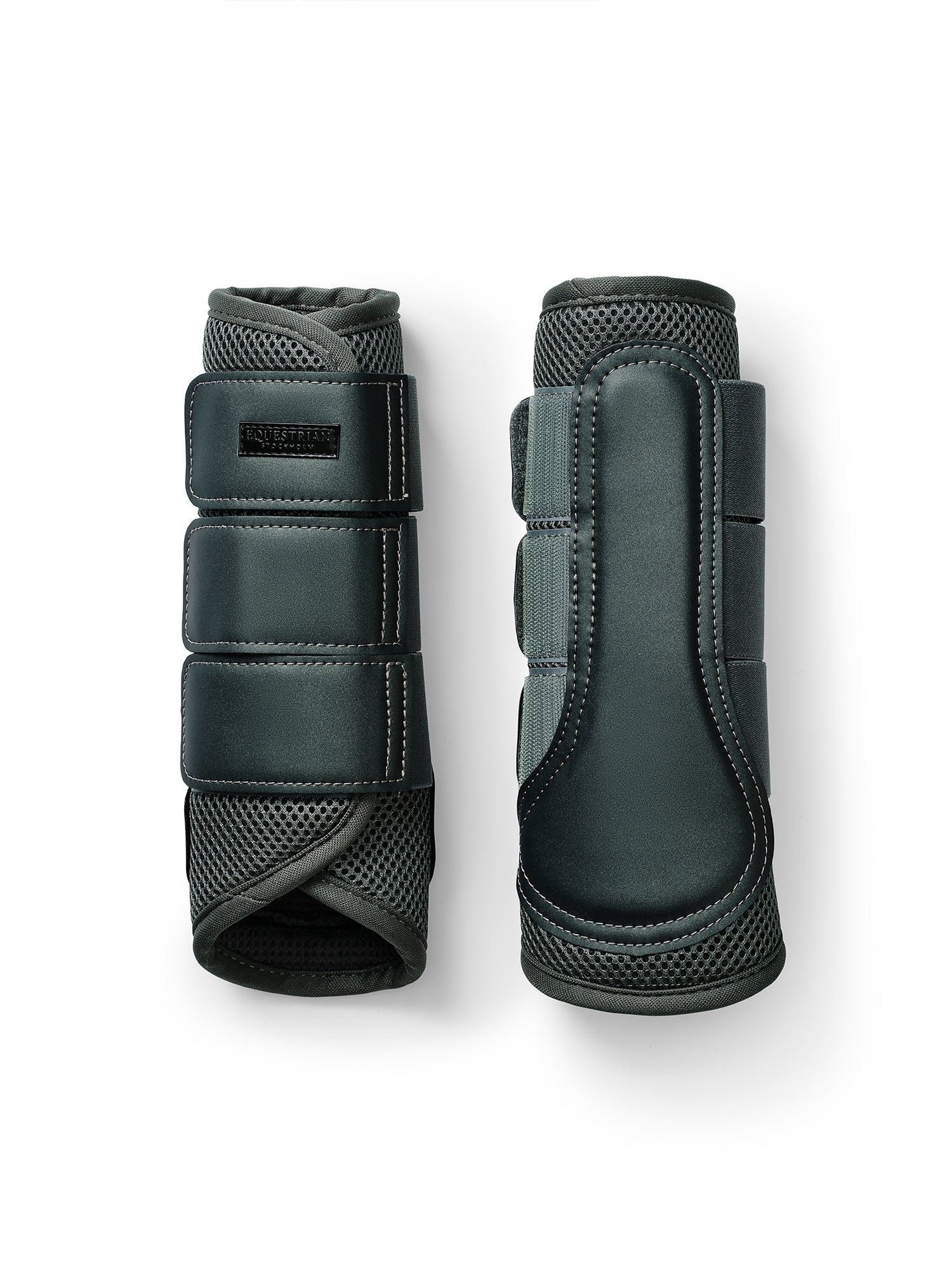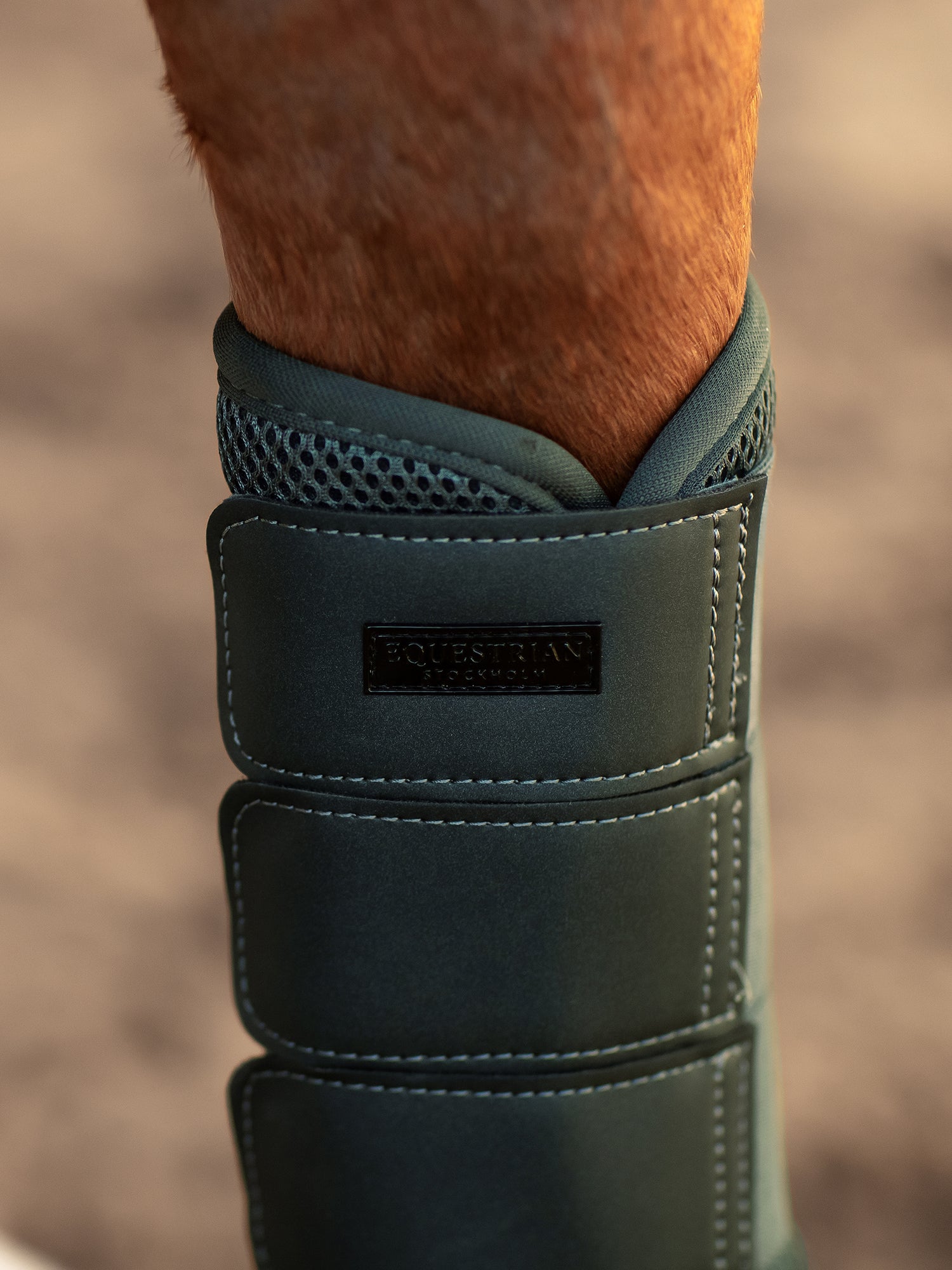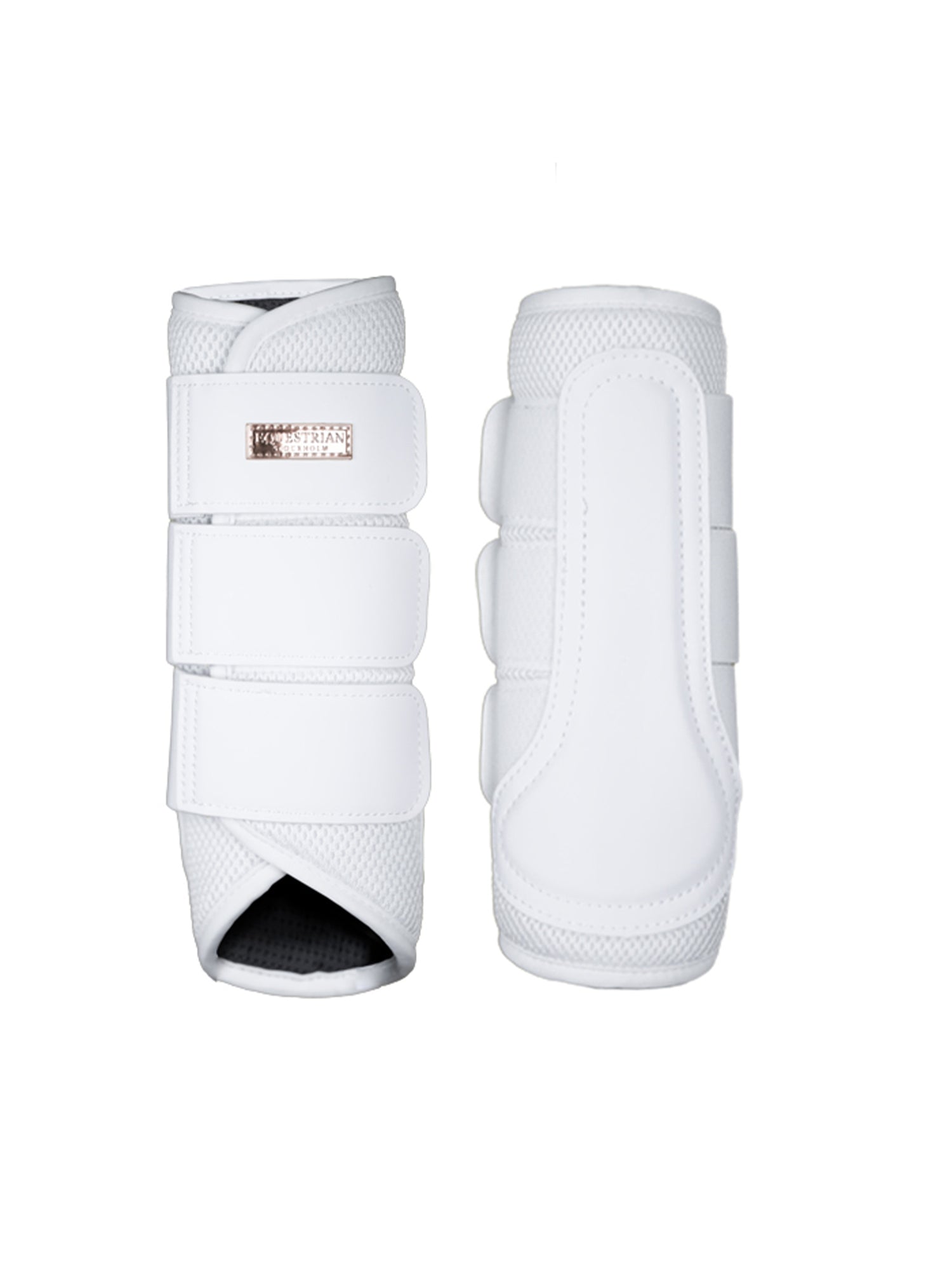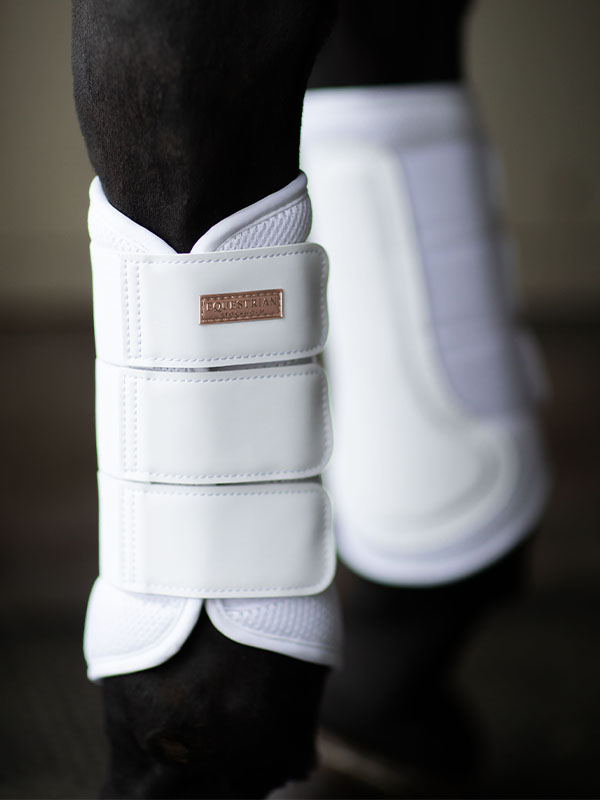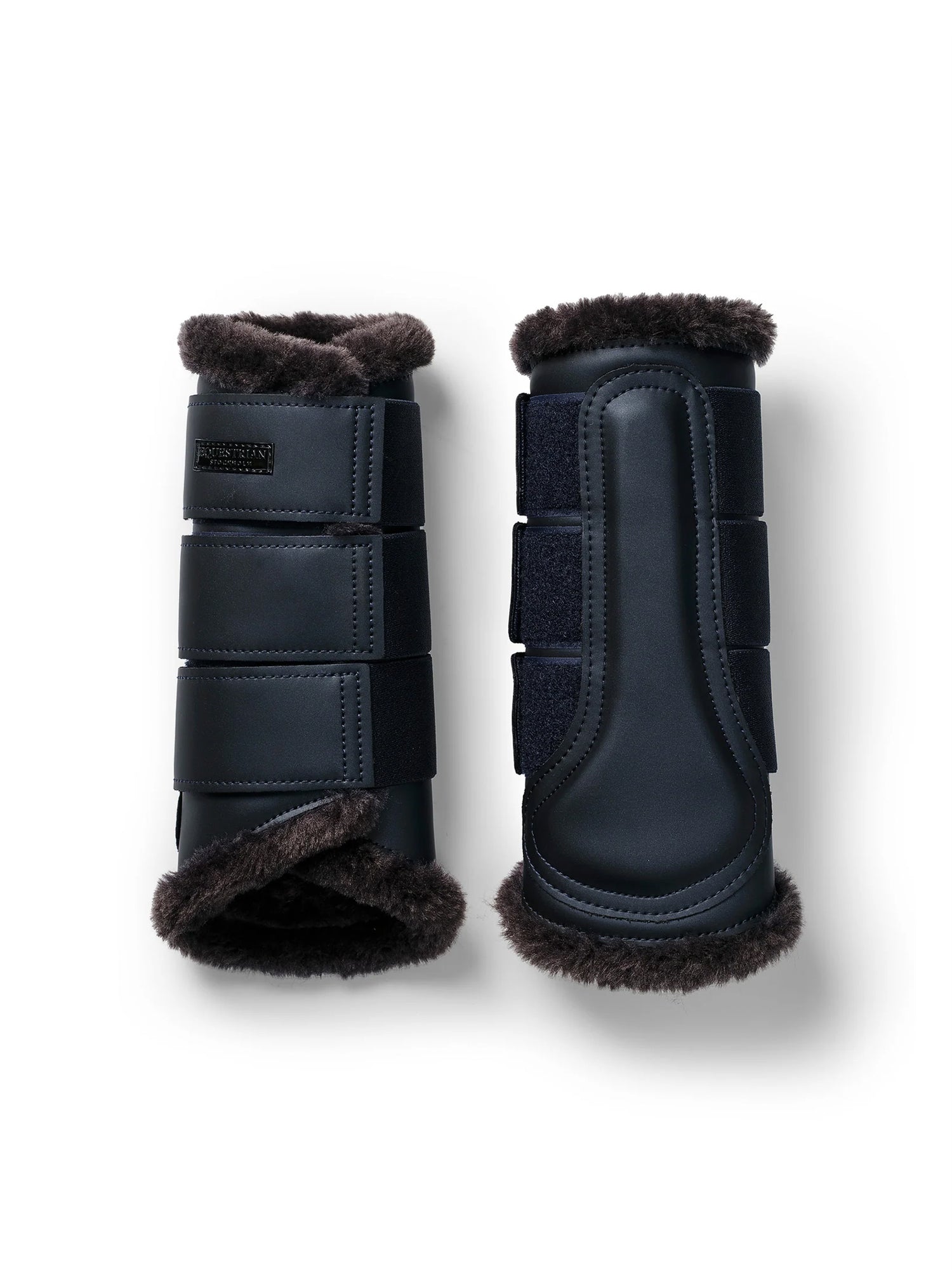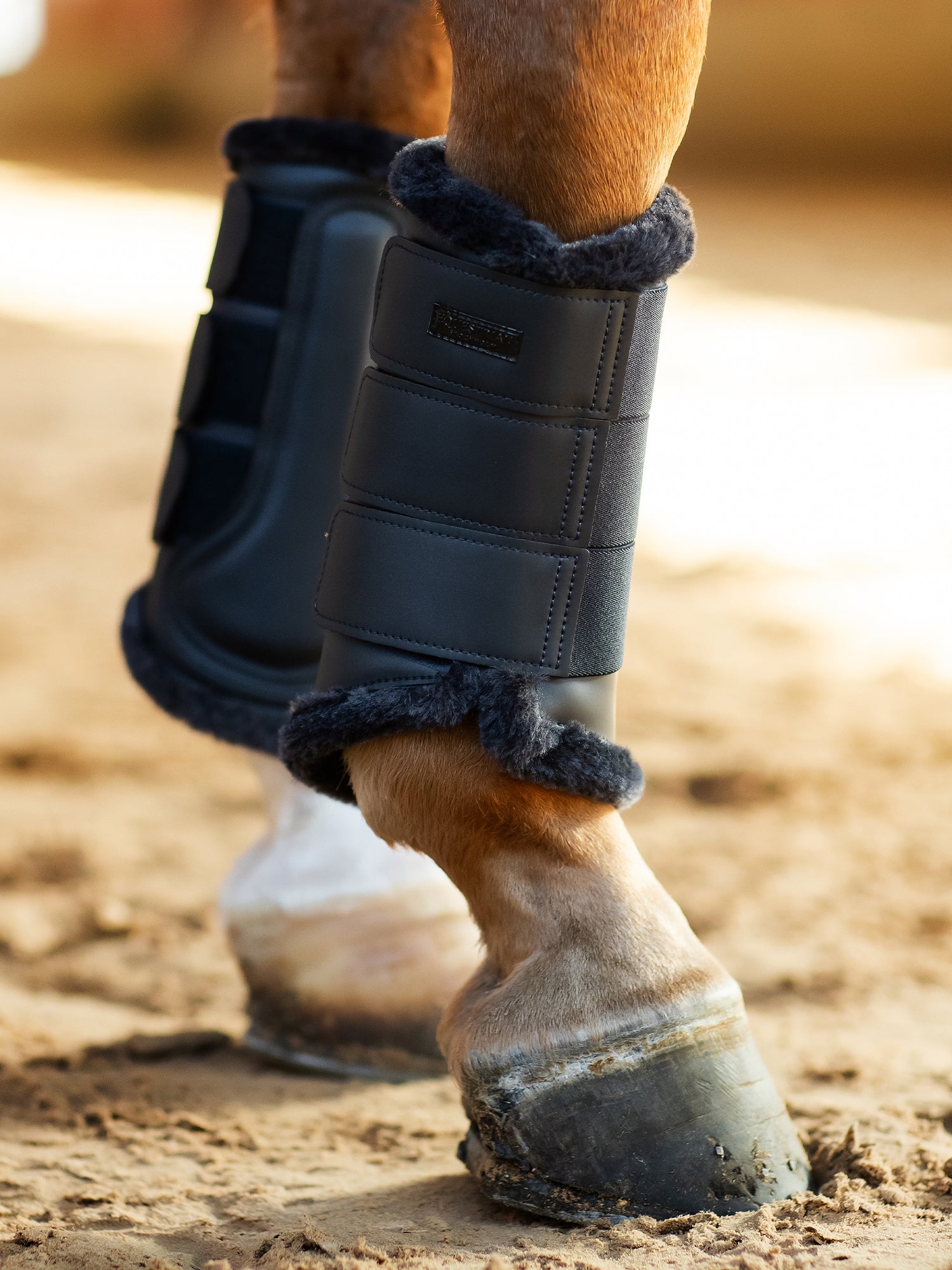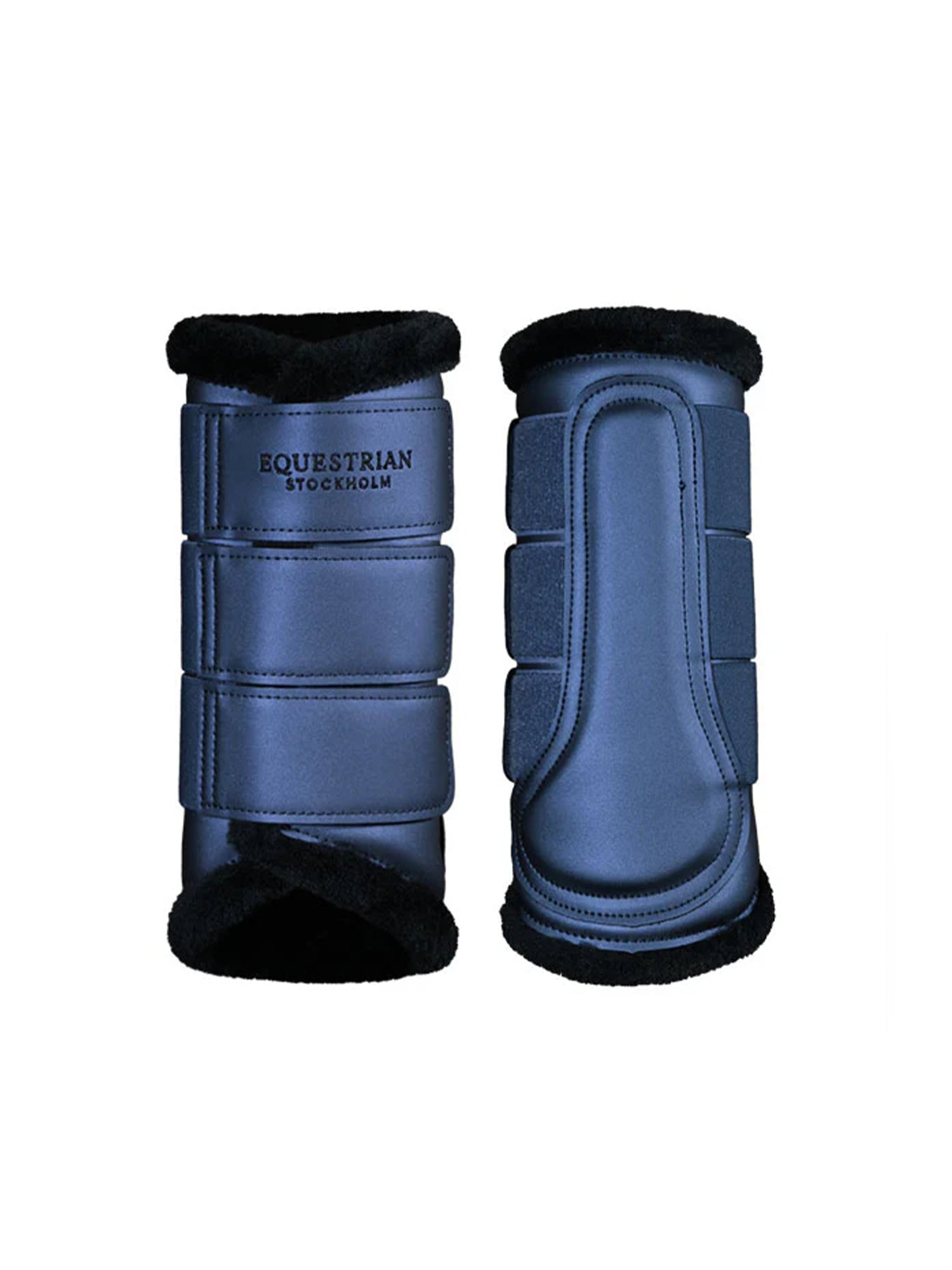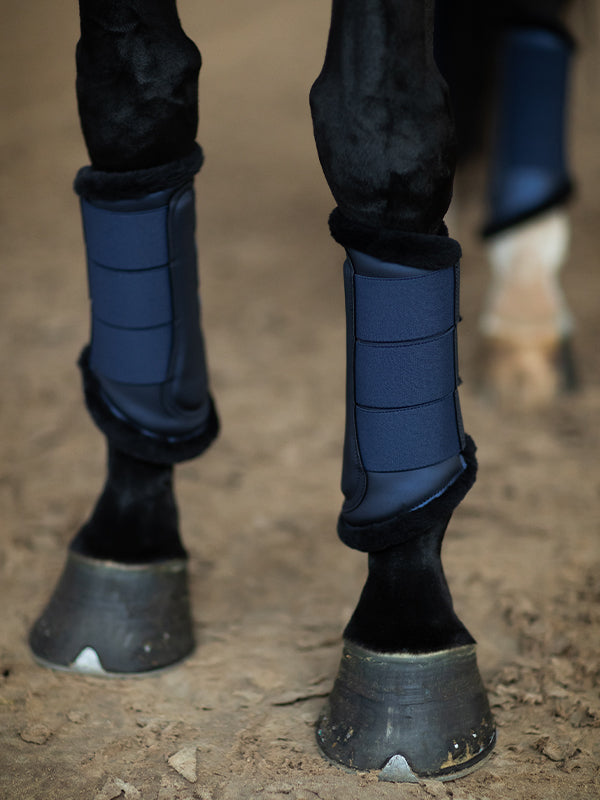Bell boots, polo wraps, or brushing boots? These are three popular variations of horse boots among many others. There are plenty of options and it can understandably be confusing when you are unsure of the different areas of use. They vary in appearance and can be used in different areas for different purposes. Let us help sort it out for you!
Bell and Brushing Boots Blue Meadow
Different Style of Boots
To make it as easy as possible, we will begin with a list all the different styles of boots. The most common are horse boots (which includes bell boots, brushing boots, tendon boots and fetlock boots), leg protectors, travel boots, and travel bandages.
All boots have a shared purpose, to help maintain the horse’s comfort and wellbeing. Horse boots are typically made of a firm and stiff material, this helps protect the horse’s legs from bumps and bruises. The boots have a broad area of use and can be worn by the horse while out riding, but also for travelling or driving.
Brushing Boots: Protection and Comfort for Your Horse
The most common boot for riding is the brushing boot, which wraps around the horse’s leg like a protective shell. The main purpose of the brushing boot is to protect the horse’s fetlock joint. The design of the brushing boot can vary depending on what brand it is made by. Some have soft fluff on the inside to maximize the horse’s comfort and others are more plain without padding on the inside. Which brushing boot you choose is a matter of taste and what works best on your horse. Equestrian Stockholm offers a wide assortment of beautiful brushing boots in a large variety of colors. They match very well with our large assortment of saddle pads.
Brushing Boots Black Edition
Bell Boots: Essential Protection for Hooves and Coronets
Another popular horse boot is the bell boot, which covers the horse’s hoof. The material of the bell boots is also typically stiff. The main purpose of the bell boot is to protect the horse’s coronet band as well as the hoof itself from bumps and bruises that can occur while riding. It is also a good idea to use bell boots as protection in case of an injury and can be worn on just one hoof if needed. Many equestrians also use bell boots on their horses when they are turned out in the pasture for extra protection.
Bell Boots Amaranth
Leg Protectors: Comfort and Coverage for Dressage
Leg protectors are also a type of a horse boot. The fabric is typically soft and they are often used in dressage. Leg protectors cover a large area of the leg and the fetlock joint. These types of boots are usually closed with a velcro strap around the leg. The leg protectors’ main function is to protect the horse’s leg from bumps and bruises. There are many different options to choose from when it’s time to buy a new pair of leg protectors for your horse.
Travel Boots and Bandages: Ensuring safety during transportation
Travel boots or travel bandages are mostly used for travelling and for the transportation of your horse, to make sure the horse is fully protected from hoof trampling and other kinds of injuries which can occur during travel.
Silicone and Rubber Shoes: Alternative Hoof Protection
Another kind of horse boot is the silicone or rubber shoe (which is the most common material) that can be used instead of regular horseshoes. This is a good alternative for horses that are extra sensitive when it comes to pressure over the hoof beam, which can occur when riding on asphalt, gravel, and other hard surfaces. This is not a boot that offers any protection to the leg, but rather protection for the hoof and under the hoof. Rubber shoes can of course be used together with other types of leg protection, such as brushing boots or leg protectors.
Polo Wraps: Support and Protection for Riding
Some equestrians prefer using polo wraps while riding, they are also called fleece bandages. Polo wraps are soft, often fleece material, and are wrapped around the horse’s leg. Polo wraps offer good support for the horses leg and also help protect the horses legs from bruises.
Polo Wraps Blue Meadow
Fetlock and Tendon Boots: Essential Leg Protection for Jumping
In the world of jumping, there are two types of boots that are commonly used to protect a horse's legs: fetlock boots and tendon boots. Fetlock boots are designed to protect the fetlock joint from impact or injury that can occur during jumping. These boots are generally made of neoprene or leather and have a hard protective shell that covers the fetlock joint.
Fetlock Boots Sycamore Green
Tendon Boots: Guarding Tendons and Ligaments During
Tendon boots, on the other hand, protect the horse's tendons and ligaments from overextension or injury during jumping. These boots are typically made of a sturdy material such as leather or PVC and have a hard protective shell that covers the front of the leg from the knee down to the fetlock joint.
Tendon Boots Black Raven
Equestrian Stockholm is the perfect choice for your horse when looking for new horse boots or polo wraps – don't forget to consider our beautiful collections by clicking here.
FAQ
1. What are bell boots and when should they be used?
Bell boots protect the hoof and coronet band from injuries due to impact or overreach. They are commonly used during riding or turnout.
2. What is the difference between brushing boots and polo wraps?
Brushing boots protect the fetlock joint from bumps while riding, whereas polo wraps, made of fleece, provide support and protection to the legs.
3. What are leg protectors and how do they differ from other boots?
Leg protectors cover a larger area of the leg and are often used in dressage. They differ from brushing boots, which specifically protect the fetlock joint.
4. When should travel boots or bandages be used?
Travel boots or bandages are used during transportation to protect the horse’s legs from injuries that can occur while traveling.
5. What are tendon and fetlock boots and why are they important for jumping?
Tendon boots protect the tendons and ligaments, while fetlock boots safeguard the fetlock joint from impact during jumping.
